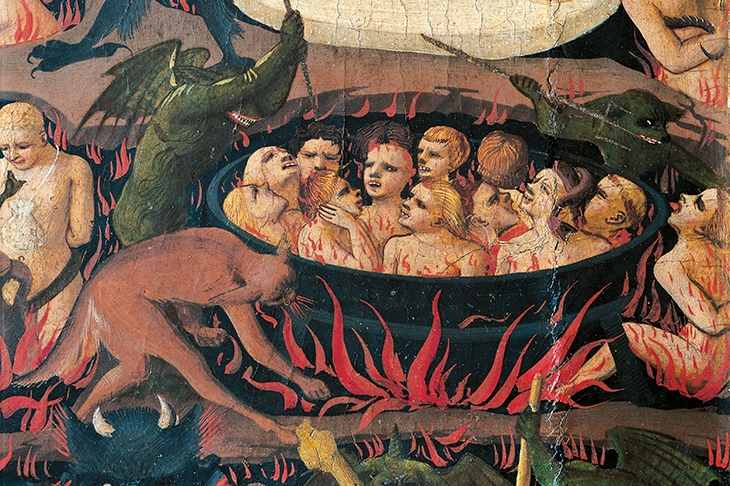 |
| From 'To Hell with Hell', article in the Spectator by Peter Sanford 28/03/20 |
Joanna has been advised that ‘Hell’ is X-rated. Apparently its not suitable for the family service.
Hell does present many conundrums.
Did God create Hell?
If the definition of Hell is ‘Where God is not’, then how could God
create Hell?
Where is Hell? We
have enough problems envisioning space.
If God is beyond time and space, then where is the edge of space? Can there be anywhere God is not?
John Powell in ‘Christian Vision: The True that sets us free
(1989) quotes another priest by asserting that ‘God does not send people to hell.’
It’s a tricky one. Why Hell? What is the significance of Hell?
Powell says that people choose their path, and Hell can be a
choice, so his is not a universalist position. The parable of the wheat
and the tares warns us that the decisions about who is ‘fruitful’, and who not,
is not for us to make. What a
mercy. But how do we understand ‘Hell’
in our modern secular society?
Let us consider the belief in the finality of live on
earth. Like the bird that fell down the chimney,
that is ‘hell’, and then there is nothing, just as there was nothing before
birth.
What if there is nothing when we die? Then there is a choice to live for oneself
and close family, or to do more for those around us, like caring for a
community set adrift in the ocean.
But for those given the faith to see life as a journey, and
to cling to ancient words of hope beyond the grave, then this life is not so
significant. Of course it is significant,
but it’s significance is as the hors’ d’oeuvres as part of a banquet.
Part of this is the idea that attendance at the banquet is a
choice. The banquet is not ‘organised
religion’. It is a marriage relationship
with the creator. It is life in the
palace, and we are not alone. There are
people around us. This is ‘the church’
(or what ever name you want to give it.)
No comments:
Post a Comment